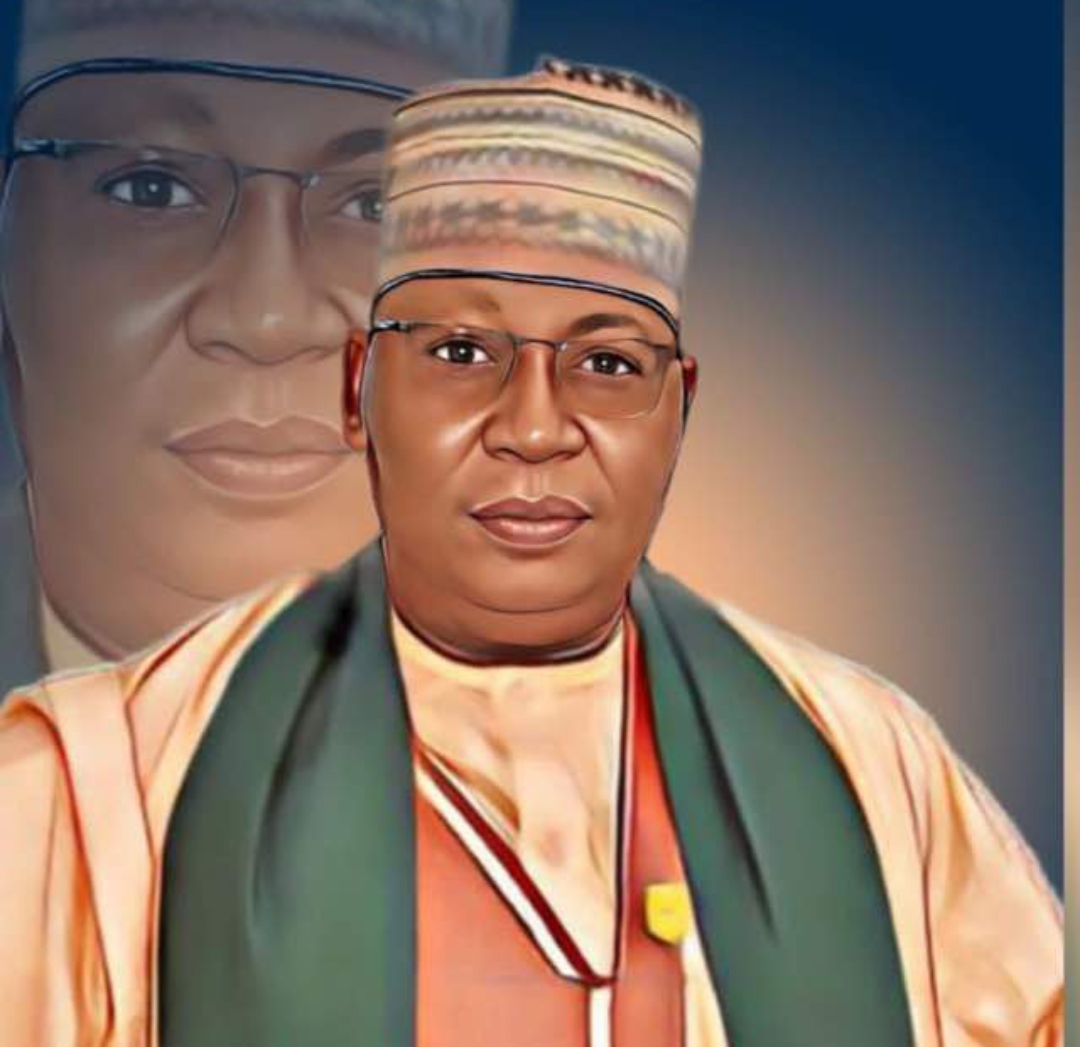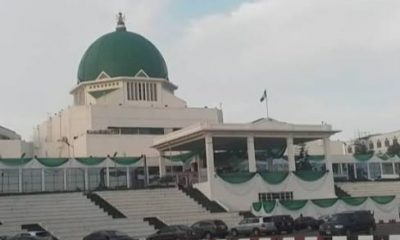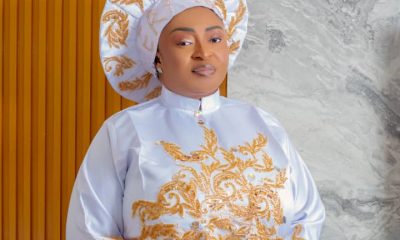society
THE ROLE AND IMPORTANCE OF CITIZENS IN UNIFORM IN A DEMOCRATIC SOCIETY

THE ROLE AND IMPORTANCE OF CITIZENS IN UNIFORM IN A DEMOCRATIC SOCIETY
By
Brigadier General Sani Kukasheka Usman (rtd) mni fnipr
“People sleep peaceably in their beds at night only because rough men stand ready to do violence on their behalf.” — George Orwell.
In every democratic society, the principles of liberty, justice, and the rule of law form the bedrock upon which the nation stands. Democracies are inherently designed to reflect the people’s will, with elected representatives tasked with governance. However, a critical component often overlooked in this equation is the role of citizens in uniform—individuals who serve in the military, law enforcement, and emergency services. These dedicated professionals are not only the guardians of national security, but also the enforcers of law and order, integral to the functioning of a democratic state, safeguarding liberty, and guaranteeing our collective peace and security. Imagine a society where the cornerstones of liberty, justice, and the rule of law crumble. The chilling reality could unfold if we fail to understand, support, and most importantly, respect the citizens who wear the uniforms, otherwise known as “citizens in uniform.” These individuals, from soldiers to police officers, and firefighters, are the bedrock of a functioning democracy.
The world over, democratic societies are built on the notion that power resides with the people. Yet, ensuring the safety and security that allows this power to be exercised freely requires a climacteric partnership, an irrevocable pact between the citizenry and those who stand guard. Therefore, citizens in uniform the military, law enforcement, and emergency responders – are entrusted with upholding the very foundation of democracy: the rule of law. They defend us from external threats, maintain law and order within our borders, and safeguard our territorial integrity. They are also the first line of defence in times of crisis, rushing towards danger while others flee, at the expense of their comfort and liberty. In the aftermath of disasters, they become the helping hands, clearing debris and aiding in recovery and most instances using meagre resources to assist with infrastructural projects. It is for this reason that a former US President, Ulysses S. Grant, famously stated “The citizen soldier is the champion of the liberties of his country. He is always ready to defend them against foreign or domestic violence, and his history is a record of patriotism.”
Citizens in uniform in Nigeria are a diverse group, encompassing soldiers, police officers, customs, immigration officials, road safety personnel, civil defenders, firefighters, and emergency medical personnel, just to mention a few. Their duties are also multitudinous and essential. Similarly, their commitment, sacrifices and service ensure that the democratic fabric of our great nation remains intact, providing a secure environment where citizens can exercise their rights and freedoms. The importance of these unique men and women and their critical roles in our society, therefore, cannot be overstated. The military safeguards the nation’s territorial integrity, whether on land, sea, or air, deterring and defending against external aggressions. Law enforcement agencies are vital in upholding the rule of law, preventing and investigating crimes, and maintaining public order. They ensure road safety and protect critical infrastructure, as well as emergency services provide critical support during disasters, offering lifesaving assistance and aiding in recovery efforts. They endure hardship and deprivation to ensure our safety and security sometimes at the expense of their precious lives. Despite the essential nature of their roles, citizens in uniform often face significant challenges and unwarranted aggression.
Most recently, a disturbing trend has emerged. The very people these professionals risk their lives to protect have become perpetrators of violent crimes against them and in most instances with devastating consequences. Militants, robbers, and even ordinary citizens have engaged in unprovoked attacks on security personnel.
In recent months, the harrowing plight of citizens in uniform has escalated dramatically, shedding light on the critical challenges they face in our society. The series of violent incidents against officers and soldiers not only underscores a disturbing trend but also highlights the magnitude of hostility towards those sworn to protect our democratic society. On 14th March 2024, no fewer than 16 officers and soldiers of the 181 Battalion, including their commanding officer, were brutally murdered by youths in Delta State. This gruesome event marked a significant and tragic loss for their families, the military and the nation at large. The violence continued unabated on 30th May 2024, when suspected members of the outlawed Indigenous People of Biafra (IPOB) coldly executed five soldiers at Obikabia junction in Aba City, Abia State. This heinous act further exemplifies the perilous environment in which our citizens in uniform operate.
Another alarming incident took place in May 2024 at Abuja’s Banex Plaza, where some unruly individuals viciously attacked unarmed soldiers. The brazen assault is one of the latest instances of unwarranted aggression against citizens in uniform, highlighting the pervasive nature of such violence. Tragically, the list of assaults continues, just a few days ago, Lieutenant IM Umar of the Nigerian Army was brutally murdered by robbers in Unguwar Sarki, Kaduna, simply over a phone. This senseless killing points to the constant dangers faced by our citizens in uniform, even off-duty. The hostility and violence extend beyond Nigeria’s borders. On 5th June 2024, gunmen in Pendjari National Park, Benin Republic, killed seven soldiers, demonstrating that this issue is not confined to Nigeria alone but is a regional concern.
These heartbreaking events paint a grim picture of the risks and sacrifices made by citizens in uniform. They face not only the dangers inherent in the discharge of their constitutional duties but also targeted attacks from within the communities they serve. This alarming trend calls for urgent attention and collective action to ensure the safety and protection of those who dedicate their lives to safeguarding our democratic society. The blatant disrespect for citizens in uniform, who embody the ideals of a democratic society, is a cause for serious alarm. Such attacks are not only detrimental to the individuals involved, their families and respective organisations but also undermine the peace, stability and security of the nation. The violence is not only unjust, despicable and condemnable but also counterproductive, as it weakens the very institutions that ensure public safety and national security. Consequently, Nigerians must recognize that these uniformed professionals are allies, not adversaries, and their presence is essential for maintaining peace and order. When citizens in uniform are disrespected and assaulted such as it erodes the rule of law and threatens the democratic order. Therefore, it is imperative for Nigerian society to recognize the noble duties and sacrifices made by these individuals and to foster a culture of respect and support for our citizens in uniform.
Therefore, how can we bridge this gap and foster a sense of appreciation for our citizens in uniform? Firstly, education is key. We must cultivate a culture of respect for these professionals in uniform from a young age. The government has an important and leading role to play in this regard. Schools and communities can play a vital role in highlighting the sacrifices made by these individuals and the importance of their service in their curriculum. Associated with this is the need for continuous civic education of all Nigerians by the National Orientation Agency (NOA).
Similarly, the government has the additional responsibility of finding alternative solutions to conflict resolution and minimizing situations that necessitate troop deployment as a means of conflict resolution. There is also the need for improved good governance which will focus more on tackling the root causes of some of these conflicts and social unrest in our societies. To further cultivate respect and appreciation for citizens in uniform, it is also essential to understand the magnitude of their sacrifices. These individuals often risk their lives, endure long separations from their families, and face physical and psychological challenges. Their dedication and service are driven by a commitment to protect and serve their fellow citizens, often under arduous and dangerous conditions. Condemning unwarranted attacks on troops and security personnel is an important step towards fostering respect, especially by the government, traditional and religious leaders, and all well-meaning people. It is quite commendable to see the national assembly and other entities condemning such acts and making efforts to find a lasting solution to this disturbing trend.
Additionally, all those involved in such attacks should be fished out and made to face the full wrath of the law. Governments at various levels should also ensure that conflicts are resolved through dialogue and diplomacy, rather than relying on military deployments as a first resort. This approach will not only preserve the integrity and morale of the armed forces but also align with the democratic values of peace and justice. Moreover, improving governance is fundamental to addressing the root causes of unrest and violence as it also entails transparency, accountability, and inclusive policies that address the needs and grievances of all citizens.
By fostering economic opportunities, ensuring equitable distribution of resources, and upholding human rights, the government can mitigate the factors that often lead to conflict and violence in our society. The citizens in uniform should also understand that respect is a two-way street. Therefore, those who don the uniform must equally honour the rights of others, conducting themselves with decorum and professionalism at all times. They should steadfastly eschew acts of indiscipline or unprofessional behaviour, both in and out of uniform.
It is important to state that citizens in uniform are governed by stringent command and control regulations. This is particularly true for members of the armed forces, who are subject to both civil and military laws. Each branch of the military has statutory procedures for addressing misconduct among its ranks. Those found guilty of infractions are often punished severely, with some facing death sentences or long-term imprisonment. Given these rigorous checks and balances, it is imperative that we, as citizens, do not take the law into our own hands when confronting perceived misconduct by uniformed personnel. Instead, any acts of misdemeanour should be promptly reported to the appropriate authorities. By doing so, we uphold the rule of law and ensure that justice is served through the proper channels, maintaining respect for those who serve and the system that governs them.
Therefore, it must be reiterated that citizens in uniform are indispensable to the health, growth and stability of any democratic society. Their roles in protecting national security, enforcing the law, and responding to emergencies are critical. In this regard, it is incumbent upon us, as a society, to recognize, respect, and support these individuals for their selfless service. Moreover, showing public disdain for the deplorable and unwarranted attacks by political, traditional, religious and civil society leaders whenever and wherever they occur and fostering a culture of appreciation for the men and women in uniform is essential. Citizens in uniform deserve better from us all. They deserve our unwavering support, our understanding of the challenges they face, and most importantly, our respect. Just as in established democracies like the USA and UK, where these professionals are revered for their service, it’s time we, as a society, recognize the invaluable role they play. We should all rally around and create an environment where our citizens in uniform are celebrated for their courage and dedication, not ostracized for their duty. The future of our democracy hinges on this collective effort. Let’s stand together, citizens and guardians alike, to safeguard the ideals that define our nation.
The writer, Brigadier General Sani Kukasheka Usman (rtd) mni fnipr, is a seasoned public affairs commentator, public relations consultant, and security expert. He can be reached on his Facebook and X handle, @skusman.
society
Ramadan: Adron Homes Felicitates Muslims, Preaches Hope and Unity

Ramadan: Adron Homes Felicitates Muslims, Preaches Hope and Unity
Adron Homes & Properties Limited has congratulated Muslim faithful on the commencement of the holy month of Ramadan, urging Nigerians to embrace the virtues of sacrifice, discipline, and compassion that define the season.
In a statement made available to journalists, the company described Ramadan as a period of deep reflection, spiritual renewal, and strengthened devotion to faith and humanity.
According to the management, the holy month represents values that align with the organisation’s commitment to integrity, resilience, and community development.
“Ramadan is a time that teaches patience, generosity, and selflessness. As our Muslim customers and partners begin the fast, we pray that their sacrifices are accepted and that the season brings peace, joy, and renewed hope to their homes and the nation at large,” the statement read.
The firm reaffirmed its dedication to providing affordable and accessible housing solutions to Nigerians, noting that building homes goes beyond structures to creating environments where families can thrive.
Adron Homes further urged citizens to use the period to pray for national unity, economic stability, and sustainable growth.
It wished all Muslim faithful a spiritually fulfilling Ramadan.
Ramadan Mubarak.
society
Underfunding National Security: Envelope Budgeting Fails Nigeria’s Defence By George Omagbemi Sylvester

Underfunding National Security: Envelope Budgeting Fails Nigeria’s Defence
By George Omagbemi Sylvester | Published by saharaweeklyng.com
“Fiscal Rigidity in a Time of Crisis: Lawmakers Say Fixed Budget Ceilings Are Crippling Nigeria’s Fight Against Insurgency, Banditry, and Organized Crime.”
Nigeria’s legislature has issued a stark warning: the envelope budgeting system; a fiscal model that caps spending for ministries, departments, and agencies (MDAs) is inadequate to meet the country’s escalating security challenges. Lawmakers and budget analysts argue that rigid fiscal ceilings are undermining the nation’s ability to confront insurgency, banditry, kidnapping, separatist violence, oil theft and maritime insecurity.
The warning emerged during the 2026 budget defence session for the Office of the National Security Adviser (ONSA) at the National Assembly in Abuja. Senator Yahaya Abdullahi (APC‑Kebbi North), chairman of the Senate Committee on National Security and Intelligence, decried the envelope system, noting that security agencies “have been subject to the vagaries of the envelope system rather than to genuine needs and requirements.” The committee highlighted non-release or partial release of capital funds from previous budgets, which has hindered procurement, intelligence and operational capacity.
Nigeria faces a multi‑front security crisis: persistent insurgency in the North‑East, banditry and kidnappings across the North‑West and North‑Central, separatist tensions in the South‑East, and piracy affecting Niger Delta oil production. Despite declarations of a national security emergency by President Bola Tinubu, lawmakers point to a “disconnect” between rhetoric and the actual fiscal support for agencies tasked with enforcement.
Experts warn that security operations demand flexibility and rapid resource allocation. Dr. Amina Bello, a public finance specialist, said: “A static budget in a dynamic threat environment is like sending firefighters with water jugs to a forest fire. You need flexibility, not fixed ceilings, to adapt to unforeseen developments.”
The Permanent Secretary of Special Services at ONSA, Mohammed Sanusi, detailed operational consequences: irregular overhead releases, unfulfilled capital appropriations, and constrained foreign service funds. These fiscal constraints have weakened intelligence and covert units, hampering surveillance, cyber‑security, counter‑terrorism and intelligence sharing.
Delayed capital releases have stalled critical projects, including infrastructure upgrades and surveillance systems. Professor Kolawole Adeyemi, a governance expert, emphasized that “budgeting for security must allow for rapid reallocation in response to threats that move faster than political cycles. Envelope budgeting lacks this essential flexibility.”
While the National Assembly advocates fiscal discipline, lawmakers stress that security funding requires strategic responsiveness. Speaker Abbas Ibrahim underscored that security deserves “prominent and sustained attention” in the 2026 budget, balancing oversight with operational needs.
In response, the Senate committee plans to pursue reforms, including collaboration with the executive to restructure funding, explore supplementary budgets and ensure predictable and sufficient resources for security agencies. Experts warn that without reform, criminal networks will exploit these gaps, eroding public trust.
As one policy analyst summarized: “A nation declares a security emergency; but if its budget does not follow with real resources and oversight, the emergency remains rhetorical.” Nigeria’s debate over envelope budgeting is more than an accounting dispute; it is a contest over the nation’s security priorities and its commitment to safeguarding citizens.
society
Rev. Mother Kehinde Osoba (Eritosin) Celebrates as She Marks Her Birthday

Rev. Mother Kehinde Osoba (Eritosin) Celebrates as She Marks Her Birthday
Today, the world and the body of Christ rise in celebration of a rare vessel of honour, Rev. Mother Kehinde Osoba, fondly known as Eritosin, as she marks her birthday.
Born a special child with a divine mark of grace, Rev. Mother Eritosin’s journey in God’s vineyard spans several decades of steadfast service, spiritual depth, and undeniable impact. Those who know her closely describe her as a prophetess with a heart of gold — a woman whose calling is not worn as a title, but lived daily through compassion, discipline, humility, and unwavering faith.
From her early days in ministry, she has touched lives across communities, offering spiritual guidance, prophetic insight, and motherly counsel. Many testify that through her prayers and teachings, they encountered God in a deeply personal and transformative way. Near and far, her influence continues to echo — not only within church walls, but in homes, families, and destinies reshaped through her mentorship.
A mother in every sense of the word, Rev. Mother Kehinde Osoba embodies nurture and correction in equal measure. As a grandmother, she remains energetic in purpose — accommodating the wayward, embracing the rejected, and holding firmly to the belief that no soul is beyond redemption. Her life’s mission has remained consistent: to lead many to Christ and guide them into the light of a new beginning.
Deeply rooted within the C&S Unification, she stands tall as a spiritual pillar in the Cherubim and Seraphim Church globally. Her dedication to holiness, unity, and prophetic service has earned her widespread respect as a spiritual matriarch whose voice carries both authority and humility.
As she celebrates another year today, tributes continue to pour in from spiritual sons and daughters, church leaders, and admirers who see in her a living reflection of grace in action.
Prayer for Rev. Mother Kehinde Osoba (Eritosin)
May the Almighty God, who called you from birth and anointed you for His service, continually strengthen you with divine health and renewed vigour.
May your oil never run dry, and may your prophetic mantle grow heavier with greater glory.
May the lives you have nurtured rise to call you blessed.
May your latter years be greater than the former, filled with peace, honour, and the visible rewards of your labour in God’s vineyard.
May heaven continually back your prayers, and may your light shine brighter across nations.
Happy Birthday to a true Mother in Israel — Rev. Mother Kehinde Osoba (Eritosin).
More years.
More anointing.
More impact.
If you want this adapted for a newspaper page, church bulletin, Facebook post, or birthday flyer, just tell me the format and tone.
-

 celebrity radar - gossips6 months ago
celebrity radar - gossips6 months agoWhy Babangida’s Hilltop Home Became Nigeria’s Political “Mecca”
-

 society6 months ago
society6 months agoPower is a Loan, Not a Possession: The Sacred Duty of Planting People
-

 society5 months ago
society5 months agoReligion: Africa’s Oldest Weapon of Enslavement and the Forgotten Truth
-

 news6 months ago
news6 months agoTHE APPOINTMENT OF WASIU AYINDE BY THE FEDERAL GOVERNMENT AS AN AMBASSADOR SOUNDS EMBARRASSING











